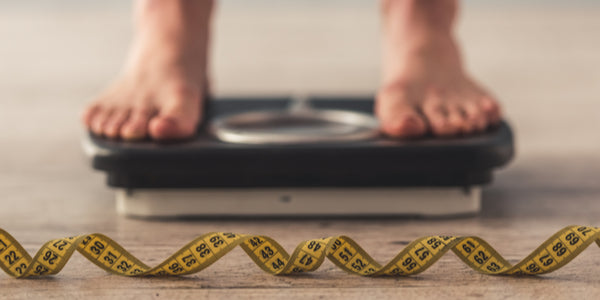
The body's immune system is one complex, yet powerful line of defense.
In short, the immune system and immune cells protect the body from foreign substances and fights off infection.
An under- or overactive immune system functions can lead to virus infections, allergies, autoimmune disorders, amongst the many risks.
That being said, the goal is to keep immune responses balanced to ward off illnesses and infections. This is where healthy lifestyle factors can come in major play.
10 Ways to Boost the Immune System
From diet to stress management, balance and strengthen immune function with these lifestyle tips to start now.
1. Wash Your Hands & Ensure Good Hygiene
Wash hands properly and frequently to prevent germs from spreading. Effective hand washing should last at least 20 seconds, lathering up with soap and rinsing with clean water.
Other good hygiene tips include covering the mouth and nose when sneezing and coughing. Keep home, work, and other spaces clean and sanitized as well.
2. Boost Your Immune System Naturally with Food
Specific foods to boost your immune system include chicken, berries, oranges, and carrots. They are valuable sources of vitamins, minerals, and other nutrients essential for a healthy immune system. These include:
• B vitamins, including folate and vitamin B12
• Iron
• Selenium
• Vitamin A
• Vitamin C
• Vitamin D
• Vitamin E
• Zinc
These nutrients are also common sources of antioxidants, which protect the body from free radicals and cell damage. These properties may reduce inflammation and boost the immune system.
Ultimately, focus most on whole grains, fresh produce, lean proteins, and healthy fat sources. The variety helps ensure the body is equipped with adequate nutrients to stay healthy.
3. Cut Back on Sugar
Too much sugar, especially refined and added sugars, can increase the risk of chronic diseases and infection.
The AHA recommends males should consume no more than 38 grams of added sugar daily. Women should limit themselves to 25 grams.
Cut back and give up refined sugar by:
• Eating based on hunger rather than cravings.
• Devising plans to deviate from boredom and stress eating.
• Practicing intuitive and mindful eating.
• Ensuring adequate sleep (read on to find out how to improve sleep).
Bottom line: Include more natural sugars sourced from fresh fruits, veggies, and other nourishing whole foods in the diet.
4. Be Cautious of Marketed Immune-Boosting Supplements & Foods
Most turn to supplements in hopes to reap marketed health benefits, including those "superfoods" and supplements that come with false claims.
Whether it be essential oils, piils, etc., be sure to be overly cautious of these marketed products. More times than not, they are too good to be true and can actually be harmful to health.
5. Exercise Regularly
Living a sedentary lifestyle has been linked to obesity, high blood pressure, high cholesterol, and other chronic diseases. It can also take a hit to immune health.
Regular exercise offers anti-inflammatory effects and can improve immune regulation. On the flip side of the coin, overtraining can put great stress on the body and increase the risk of overtraining.
To find balance in exercise, include a variety of aerobic exercises and resistance training. A healthcare provider can assist in safe recommendations as well.
Aerobic Exercise
The American Heart Association encourages at least 150 minutes of aerobic exercise weekly, breaking down to 30 minutes most days of the week.
Aerobic exercise includes brisk walking, jogging, biking, dancing, and any sort of activity that elevates heart rate.
Resistance Training
Resistance and strength training is simply the act of building muscle and strength. It is recommended to be completed at least two times a week.
Embrace muscle balance and target all muscle groups of the upper and lower body. Likewise, focus on good form to protect from injury and maximize each workout session.
Dismiss a Sedentary Lifestyle
Aside from structured workouts, dismiss a sedentary lifestyle and aim to be more active in the day. Simple ways to increase activity include:
• Parking far away from the entrances
• Taking the steps over the elevator
• Walking the dog around the neighborhood
At the end of the day, some movement is better than doing without!
6. Moderate Alcohol Intake
Too much alcohol can negatively affect the immune system, making it more susceptible to illness and infection.
One should stick to standard drinking sizes, which include:
• 12 ounces of beer
• 5 ounces of wine
• 1.5 ounces of hard liquor
Men are also advised to stick to two servings per day while women are limited to one.
7. Practice Smoke Cessation
Overall, smoking has a negative impact on the overall health and consequences of immunity. Smoking harms the immune system and can impede on fighting disease.
Smoke not only impacts the smoker… Secondhand smoke causes 7,333 annual deaths from lung cancer, 33,951 annual deaths from heart disease, an estimated 41,000 deaths each year!
With tobacco likewise identified as the leading preventable cause of death in the U.S., there really is no better time to quit!
Not only are you benefiting the health of your own body to live longer, but considering the health of others by reducing secondhand smoke.
8. Ensure Adequate Sleep
Sleep deprivation affects health on all levels, including taking a hit to the immune system.
Though the general rule of thumb is aiming for seven to nine hours on a nightly basis. If struggling to ensure adequate sleep, use these steps for a better night's rest.
1. Stick to regular sleep and wake times.
To set an appropriate bedtime, think what time is needed to wake up then subtract seven to nine hours of sleep.
Become exposed to bright light in the morning and limit it at night, too. Doing so helps to keep circadian rhythms in check. Also, turn off all electronics that emit blue light.
2. Build a bedtime routine and a cozy environment.
This may include practicing stress-relieving techniques such as listening to music, reading a book, and taking a warm bath.
Create a bedroom conducive to sleep as well. This includes generating a cool climate, shutting off all lights, and turning off all noise distractions.
3. Avoid daily habits that can impede on nighttime sleep.
Avoid daily naps if having difficulty falling asleep at night. If deciding to nap, stick to 20 minutes for the utmost benefits.
Also, keep caffeine intake in the morning hours and give up its intake in the afternoon and evening. But beyond coffee, caffeinated products include soft drinks, energy drinks, tea, and chocolate.
Consult with a primary care doctor or sleep specialist if still having difficulty falling asleep.
9. Manage Stress
While some stress can be productive, too much of it can have consequences on health.
Research shows chronic stress weakens the immune system and managing it may help people fight germs. Maintaining low-stress levels can also combat the common cold and speed the healing process.
Practice healthy stress-relieving techniques and methods, including:
• Practicing yoga
• Meditating
• Taking a warm bath
• Reading a favorite book
• Listening to music
• Exercising
• Calling a loved one
How one relieves stress is personal, so do what works best for you and your mental health.
10. Aim for a Balanced, Healthy Lifestyle
All-in-all, the immune system thrives best when taking a comprehensive approach. (And not falling victim to a single, quick fix "immune-boosting supplement.")
Aim to put your healthiest foot forward year round to keep the immune system balanced and ward off illness risk.
References:
Nieman DC, Wentz LM. The compelling link between physical activity and the body's defense system. Journal of Sport and Health Science. 2019;8(3):201-217. doi:10.1016/j.jshs.2018.09.009
Smoking and Overall Health. Centers for Disease Control and Prevention. https://www.cdc.gov/tobacco/data_statistics/sgr/50th-anniversary/pdfs/fs_smoking_overall_health_508.pdf
Stress Weakens the Immune System. American Psychology Association. https://www.apa.org/research/action/immune
Thompson AE. The Immune System. JAMA. 2015;313(16):1686. doi:10.1001/jama.2015.2940
Wu D, Lewis ED, Pae M, Meydani SN. Nutritional Modulation of Immune Function: Analysis of Evidence, Mechanisms, and Clinical Relevance. Frontiers in Immunology. 2019;9. doi:10.3389/fimmu.2018.03160







